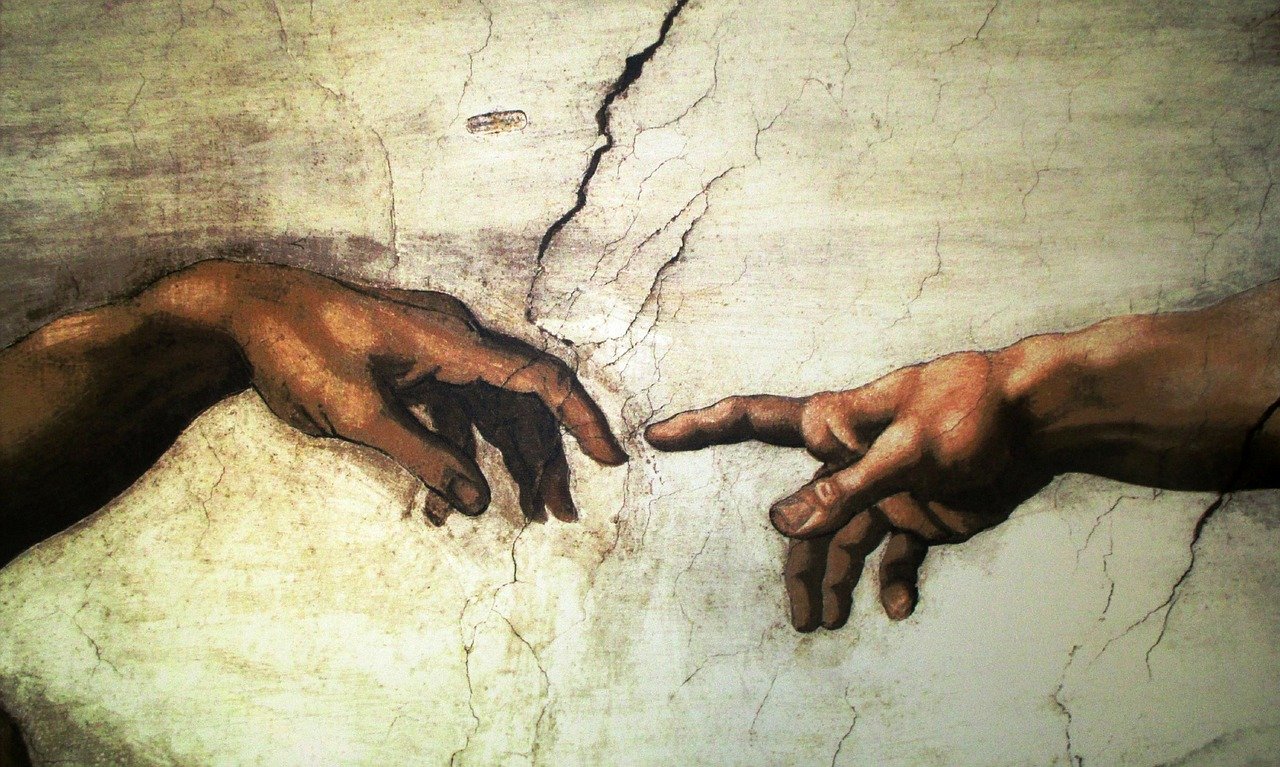These days many of us find ourselves with a lot of time to think. Such introspective moments can be reframed and put to work in a way that gives us new insights on our current situation…and where we go from here.
Recently I considered two quotes that are attributed to Michelangelo. In one he said, “I saw the angel in the marble and carved until I set him free.” In another the artist remarked “Every block of stone has a statue inside it, and it is the task of the sculptor to discover it.”
The juxtaposition between these two quotes and what we focus on in the news and daily briefings about the pandemic is quite stark. It’s easy to look at the facts, figures, charts, projections and predictions, and reduce everything we know about this pandemic into numbers and, often, fear.
An artist’s eye is trained to see things others may not see. Michelangelo’s artist eye saw the angel in the marble or the statue inside the block of stone, whereas both may have looked like plain rock to someone else.
This pandemic is a shared experience across the globe. We’re all in it together. And metaphorically speaking, if we look beyond the numbers and visceral emotional reactions, it is our “block of stone.”
Applying An Artist’s Eye
If we looked at our current situation the way Michelangelo looked at a block of stone, what could we see? Attention and focus are critical resources in our leadership, our organizations and our lives. If we are narrowly focusing on, or obsessing over, the news every day, our attention and focus are honed entirely on what we’re seeing there. This can hinder our ability to see what’s not being talked about in daily briefings – the things that are impacting us directly day to day, minute to minute in our personal lives, not just the wider scope outside the walls of our houses.
I believe seeing what is not always visible is an essential part of leadership, especially in an external environment where there are more things that are uncertain than that are certain. When we look at this pandemic, there are some things that are completely unknowable and will not be well understood until time has passed and we can look back on it in retrospect. Whether it is science, public health, government, economics, education or any of the other many areas of life impacted by this pandemic, sorting out the unknowns and learning lessons from them won’t happen immediately. None of us can predict them now.
But what we can do is consider our pandemic “block of stone” through our own lens and ask new, challenging questions of ourselves. These questions aren’t about the science of the coronavirus, but about the impact of the situation on us. For example:
- As I shelter in place, what is emerging in myself?
- Human influence on the world is largely paused right now. What are we learning about how humans have impacted the world and the climate?
- Are there processes, ways of thinking or structures that this pandemic is making obsolete?
- What are the weaknesses or fractures that this pandemic has exposed?
- Is there anything I am resisting? Why am I resisting it?
- Am I focused on returning back to the old normal?
- Am I focused on discovering and embracing the new normal?
When we’re staring straight ahead at the news on our screen, our own personal experiences during this pandemic are in our peripheral vision and easily overlooked. These questions are an example of how we can shift focus and pay attention to what’s not capturing our direct attention.
Carving Out the Personal Impact of the Pandemic
Even though there’s no way to predict the future, I still find myself with a healthy wonder about how we will all be changed – individually and as a society – when the threat of the pandemic has passed. When I consider this, I ask myself some of the following questions that help me see what is waiting inside the “block of stone.”
- How will our organizational processes change?
- How will my time be different going forward? What will my days and weeks look like?
- What lessons can I learn from our pause about public policy, politics, our impact on the environment or the very way we view leadership?
- How will I be changed by this experience? Will the way I look at organizations, community, the world and leadership be different?
- What are the possibilities – the angels in the stone – this pandemic will bring to the world to make it more resilient, regenerative, fair and just?
There are positive lessons to be found in anything – even a pandemic. Disruptions in nature are a regular occurrence, whether they are forest fires, hurricanes, floods, earthquakes or other disasters. Nature doesn’t cling stubbornly to its old form as it endures these events. Instead, nature adapts. It restores and regenerates disrupted ecosystems. Where once disaster struck, a new ecosystem may soon flourish.
Is that what this pandemic is teaching us and preparing us for the new normal human experience?


